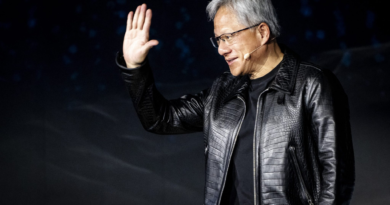Boomers and Gen Xers are betting on a retirement ‘mega-trend’ that could transform the workforce—and when employees leave their jobs
Of course, retirement in the U.S. isn’t a monolith—some work until age 65 before leaving for golf courses and world cruises, while many others never fully retire at all. Others are set on leaving the traditional work world as soon as possible, entering high-paying but stressful fields so they can sock away money and then quit in their 50s—or even earlier.
But there’s another option that benefits both employees and businesses, says Alicia Garcia, the chief culture officer of life sciences software company MasterControl. A so-called phased retirement can help near-retirees reduce their workload and stress while still earning income and maintaining workplace connections, and businesses can continue to benefit from their years—or even decades—of experience.
Phased retirements aren’t unheard of. According to Principal Financial Group’s most recent Financial Well-Being Index, 61% of companies—mostly larger organizations—have some experience in implementing them. But they are becoming more structured—currently, only 16% of employers have experience with phased retirements on a regular basis—as more employees voice how much they value flexibility, says Chris Littlefield, president of retirement and income solutions at Principal.
The same report finds that “gradually decreasing hours” is the most desired way of retiring for current workers, particularly for Gen X, millennials, and Gen Z. Littlefield says the shift is starting with Gen Xers because they’re the first to have to rely primarily on 401(k)s and other forms of personal savings for retirement; they may not be able to afford a hard stop at 65, but they do want to take their foot off the gas a little bit.
“Fitting work into their life, rather than their life into their work, is really important,” says Littlefield. Companies “need to start thinking about an intentional offboarding strategy, because people staying somewhere until 65 is going by the wayside.”
‘Easy to find win-wins’
Embracing the growing trend could be a win-win for employers and employees, says Garcia. MasterControl began phased retirements after a newly retired employee contacted Garcia to say that leaving the working world had led him to question his purpose in life. Moving immediately from full-time work to no work at all had negatively affected the mental health of Garcia’s former employee, who didn’t want to work full time but also didn’t want to stop so abruptly. Why did it have to be all or nothing?
Now, the company offers different options to employees, depending on their needs and circumstances. Some older workers—say, those in their late 50s or early 60s—can scale back to four days a week, or even to 1099 status, which is reflected in their pay. And employees working at least 30 hours per week retain their benefits.
“We had an individual who went to four days a week, and we adjusted their salary by 20%. They had a three-day weekend every week,” Garcia tells Fortune. “We still had their knowledge, and we could absorb that work pretty easily. It wasn’t material enough for anyone else to feel overloaded.”
Exactly how this offboarding process is structured can vary. Health insurance is a top consideration for many employees, Garcia says. Some may prefer to retain their employer-sponsored plans until they qualify for Medicare and Social Security payments, while others may rely on a spouse for health benefits and feel comfortable working fewer than 30 hours.
There are other types of accommodations companies can make. Some workers have transitioned to retirement slowly, first working four days a week, then three days, and then on a contract basis. Others may move to a different team within the company that’s less demanding or carries fewer responsibilities. An employee in sales, for example, might transition to managing client relationships rather than chasing new leads.
“It’s a great way to keep them in the organization but shift them to a role that is good for their mental health and personal life,” says Garcia.
It also allows for a smoother knowledge transition to a company’s next generation. MasterControl operates in a space that’s highly technical and requires significant regulatory knowledge that can only be gained over “years and years” working in the industry. Providing more flexibility to older workers gives them opportunities to offload their expertise, which Principal’s Littlefield said could be particularly helpful in specialized fields like nursing and auto repair.
“If they all left at the same time, we would have a significant knowledge gap at our organization,” says Garcia. But phased retirements let the company “maintain a customer experience where they don’t notice that someone has left. The last thing I want is for a customer to say, ‘What is going on at MasterControl?’”
Another benefit, Garcia says, is that it can build engagement and loyalty among younger employees. If they know they’ll be granted flexibility in their later years, they’re more likely to stick around.
“We’re a for-profit company,” she says, “but it’s easy to find win-wins.”
‘Companies have to care about you’
As the youngest baby boomers are set to turn 60 by the end of this year, experts are predicting a potentially seismic impact on the economy, including the loss of untold experience and expertise as they retire. Many employers are scrambling to smooth out that transition.
Phased retirement can help, says Principal’s Littlefield. And as the “great unretirement” stemming from the COVID-19 pandemic shows, many boomers don’t necessarily want to leave the workforce entirely.
“Businesses are telling us, ‘We have some really experienced people here who we need for business success.’ They are all struggling with recruiting and retaining talent, so you have to keep the talent you have—that’s a lot more effective, efficient, and productive,” says Littlefield. “It’s a mega-trend in the workforce. It will be a very significant lever for them over the next decade.”
Offering phased retirement plans, Garcia adds, also helps land talented employees in the first place.
“We’re seeing so much more now that companies have to care about you as a person or you won’t recruit top talent,” says Garcia. “This feels right in line with other programs that you do to make sure employees are happy.”




